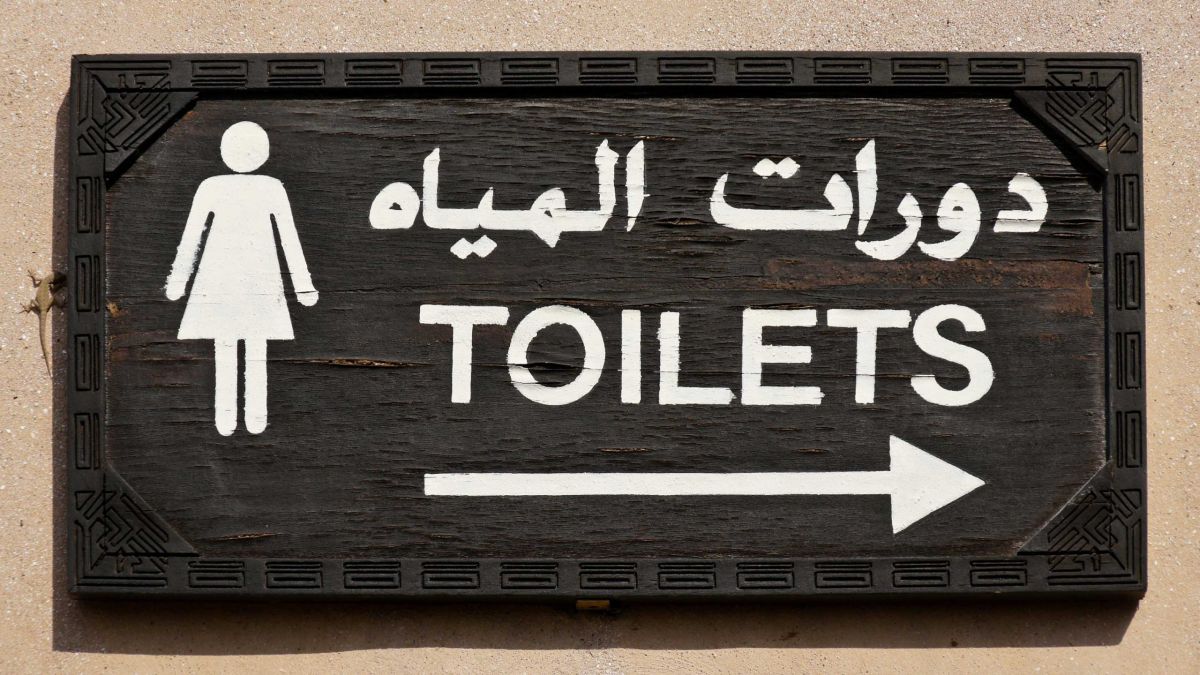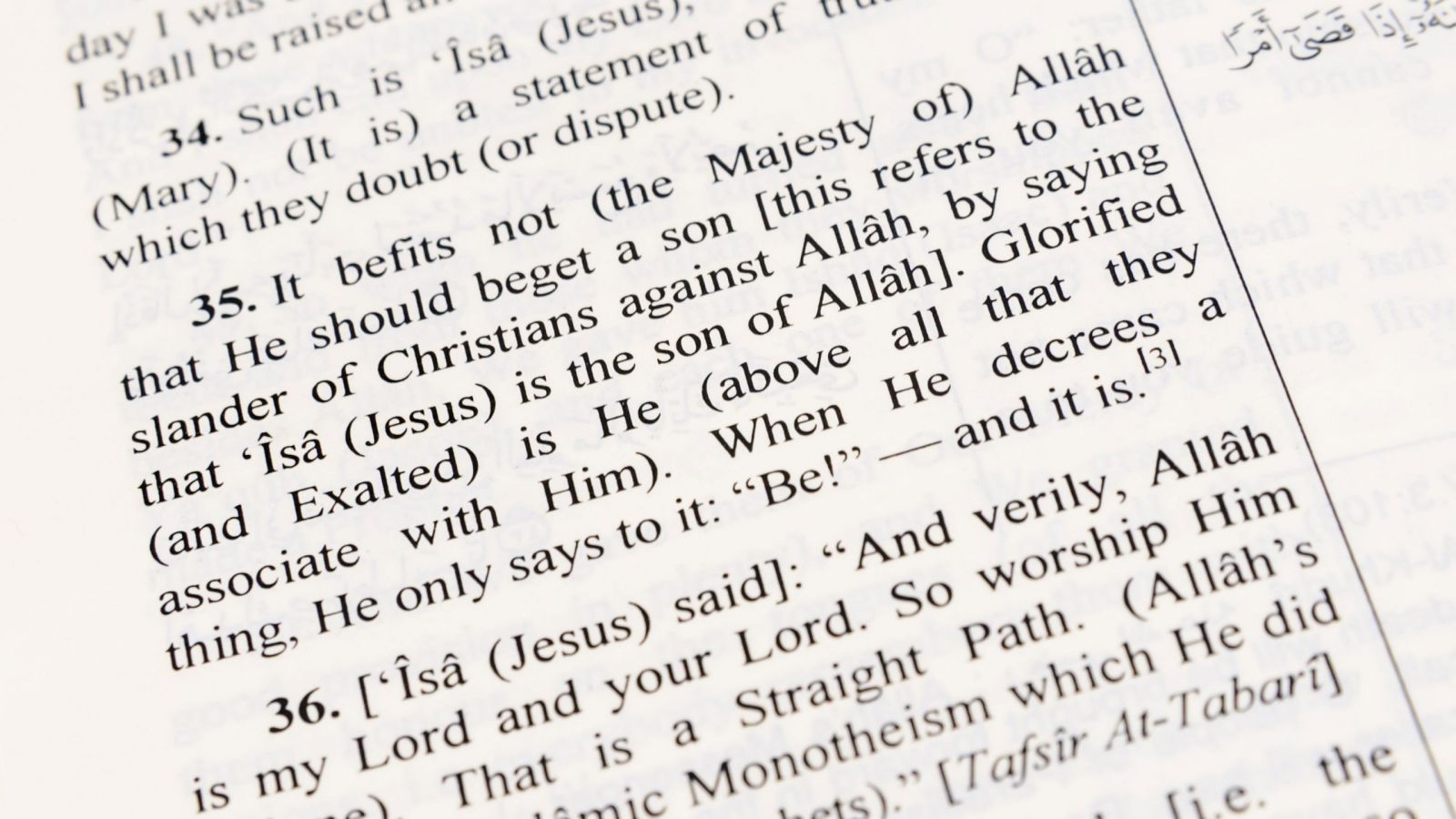Islamic Etiquettes of Using the Toilet
Imām Muḥammad ibn Ṣāliḥ al-ʿUthaymīn


A series of topics on the etiquettes of relieving oneself:
- The Ruling on Speaking While Answering the Call of Nature
- The Ruling on Urinating While Standing
- Is Wiping and Squeezing the Penis Post-Urination Correct?
- Three Methods of Cleaning Oneself After Answering the Call of Nature
The Ruling on Speaking While Answering the Call of Nature1
It is makrūh (disliked) for the person answering the call of nature to speak while in the lavatory. The evidence of this is that a man passed by the Prophet (ﷺ) and greeted him while he was urinating but he [the Prophet ﷺ] did not return his greeting.2
[The scholars] say: If speaking [while in such a state] was permissible, he would have returned his greeting. This is because returning another’s greeting is obligatory.
The evidence provided would stipulate that speaking while answering the call of nature takes the ruling of being ḥarām. Considering this, the author of al-Nukat, Ibn Mufliḥ (raḥimahullāh), said when addressing this issue: ‘Their evidence would denote a ruling of ḥarām, and it [the ruling of impermissibility] is one of the two opinions in this issue.’
[The Ḥanabalī madh`hab] does not hold the opinion [of harām] for two reasons:
- The greeter [as in the ḥadīth] does not deserve to be answered because it is inappropriate for one to greet the one who is answering the call of nature. In fact, anyone who greets another while he is in a state that is inappropriate to receive a greeting should not be responded to. Although this reasoning is weak. This is because the Prophet (ﷺ) did not justify his lack of response with the fact that his greeting occurred while in a state wherein a response was unbefitting.
- The Prophet (ﷺ) did not abandon what was obligatory. Rather, after he had finished urinating he returned the man’s greeting and apologised to him.3
Nonetheless, the opinion [of makrūh] is correct. This is because delaying the response to a greeting does not denote the impermissibility [of the greeting itself]. However, if two people were answering the call of nature—looking at the ʿawrah of one another and conversing—this would undoubtedly be ḥarām. The narrated ḥadīth in this matter—if it was not for the difference of opinion regarding its authenticity—would prove that such an action is from among the major sins. As the Prophet (ﷺ) has related to us that Allāh despises that two men do so.4 Despise is a more severe term than hatred. If they do not look at the ʿawrah of one another, then it is makrūh (disliked) at the very least.
Imām Aḥmad (may Allāh have mercy on him) has specified that it is disliked [makrūh] for one to speak while answering the call of nature, and in another narration he said: “It is inappropriate.”
It is well-known [in the Ḥanbalī madh`hab] that if [Imām Aḥmad] says regarding a matter: “I dislike it” or “it is inappropriate,” it denotes that the matter is ḥarām [in his opinion]. Considering this, it is disliked for a person to speak while answering the call of nature. The exception would be if there is a need to speak as specified by the jurists (raḍī Allāhu ʿanhum). This could be if someone requires directions, or says something that requires an immediate answer, or if he needs a person and he fears that this person may leave, or if he requests water to clean himself, then in these [situations and their likeness, speaking would be] permissible.
The Ruling on Urinating Whilst Standing5
Urinating while standing is permissible, especially when there is a need to do so, but it has two prerequisites:
- safety from impurity [from exiting urine]
- seclusion [from the gaze] of onlookers
[This is because] it has been confirmed in al-Ṣaḥīḥayn that the Prophet (ﷺ) came upon the landfill of a people and urinated standing. Some scholars claim that he only did so to clarify permissibility while others say he did so because there was a need. The landfill was close to a gathering of people that were within view. So, if he was to sit at its apex with his back to them, his urine would have splashed on himself. However, if he was to sit at its apex facing them, he would have exposed his ʿawrah. Thus, he had to urinate standing with his back to the people. In this case, there is a need for him to urinate while standing.6
As for the ḥadīth: ‘that he only did so because of an injury in the hollow of his knee,’7 this [ḥadīth] is weak. Likewise, the other weak opinion is that he did so because the Arabs used to treat knee pain through standing while urinating. However, we can say that if the Arabs experienced knee pain, they would urinate standing because they had a need to do so.
Wiping and Squeezing the Penis after Urination8
[According to the Ḥanbalī madh`hab], it is from the Sunnah for a man to wipe from the back of his member—that is from his anus to the head of his penis—three times after urinating. This is to extract any urine that remains in the shaft of his penis. There may be urine present that, upon him standing or moving, may drain. Due to this, he allows it to trickle out by wiping from the back of his member to the head. This opinion is extremely weak. This is because [such an action] has not been authentically reported to be from the Prophet [ﷺ]. Additionally, [this wiping] is likely to harm the inner urinary tract. Especially if one additionally squeezes [the penis], it is likely to result in diuresis [copious urination]. Thus, Shaykh al-Islām [Ibn Taymiyyah] said:
‘The penis is like a nipple; if it is squeezed it leaks and if it is left it remains as is.’
Considering this, [post urinary wiping] is not from among the recommended acts. Rather, if one finishes urinating he needs to only clean the head of his penis.
It is also [from the Ḥanbalī madh`hab] to squeeze [one’s penis post urination] three times. This squeezing refers to the attempt to mobilise the inner contents of the shaft. The evidence of this is the ḥadīth: ‘If one of you urinates, let him squeeze his penis thrice.’9 They claim: this is so that whatever urine is left over is removed if there still remains a small amount. However, the ḥadīth is weak and not to be relied upon. Furthermore, this squeezing is from the forbidden acts of meticulousness regarding which Shaykh al-Islām says: ‘[Post urinary] squeezing is an innovation and is not from the Sunnah. It is inappropriate for one to squeeze his penis [post urination].’
These two matters [squeezing and wiping] that are mentioned [from the Hanbalī madh`hab] are similar to what has been mentioned by [other] scholars that one should cough [after urinating] to extract any remaining urine. While others claim that one should stand and walk a few steps [for this purpose]. Others also say that he should quickly ascend stairs [after urinating] for the aforementioned reason. All of these [actions] are from baseless satanic whisperings. This religion—all praise be to Allāh—has been made easy.
Urinary Incontinence
While it is correct that some individuals may be tested with some urine leaking out if they do not walk or move after cleaning themselves post-urination, these [people] have a separate, specific ruling. [For them], we would say: If you finish urinating and it is from your habit that your remaining urine does not come out except by walking or moving in some way, then there is nothing wrong if you walk as long as you are completely sure that this will cause something to come out. However, if it is only a lark then it has no meaning. This [ruling] is issued as a curative measure for such a person. We do not make this a general ruling that would apply to everyone.
Three Methods of Cleaning Oneself After Answering the Call of Nature
A person who answers the call of nature fits into one of three categories:
Cleansing with Water
1.) One who cleans himself with water only. This is permissible according to the correct opinion. While there existed an old controversy wherein there was a difference of opinion concerning this amongst some of the salaf who objected to this type of cleaning, claiming: ‘How can I dirty my hand with that which is so putrid and disgusting?!’
However, the correct opinion in this matter is permissibility and ijmāʿ (consensus of the scholars) after this [initial difference] was formed [to this effect]. The evidence of this is the ḥadīth narrated by Anas (may Allāh be pleased with him) who said:
‘The Prophet (ﷺ) used to enter the lavatory and I, and another boy similar to myself [in age or in service to him], would carry a vessel of water and a short spear [to hang his clothes to cover him]. He would clean himself with the water.’10
As for the wisdom behind this, it is that fundamentally all forms of najāsah are removed with water. Just as one [uses water] to remove najāsah from his foot [or shoe], he can also use [water] to remove the najāsah that comes from himself.
Cleansing with Stones
2.) One who cleans himself with stones only. Cleaning oneself in this way is permissible, as evidenced by the saying of the Prophet (ﷺ) and his actions.
As for his saying: [it is in] the ḥadīth of Salmān [Al-Fārisī] (may Allāh be pleased with him) who said:
‘The Prophet (ﷺ) used to forbid us from clean ourselves [after answering the call of nature] with less than three stones.’11
As for his actions: [it is in] the ḥadīth of Ibn Masʿūd (may Allāh be pleased with him) that the Prophet (ﷺ) used to come upon the low ground [for the purpose of defecation]. He ordered me to bring him three stones. So I brought him two stones and one [hardened] dung. The Prophet (ﷺ) took the two stones and threw away the dung saying: ‘That is riks [i.e. najs].’ In another narration, he said: ‘Bring me other than it.’
In addition, in the ḥadīth of Abū Hurayrah (may Allāh be pleased with him) who collected stones for the Prophet (ﷺ) [for the purpose of cleaning himself] and used his clothing to hold all of them before depositing them with him and leaving. This proves the permissibility of cleaning oneself with stones only.
This also proves the efficacy of the opinion of Shaykh al-Islām [Ibn Taymiyyah] that if najāsah is removed by whichever means [water or stones], the place from which it was removed becomes clean. This [opinion] is closer to that which has been related [in the aforementioned aḥādīth] and to what we can logically conceptualise rather than the opinion of those who claim: najs cannot be removed except with clean water.
Cleansing with Stones then Water
3.) One who cleans himself with stones, then water. I do not know this action as being confirmed by the Prophet (ﷺ). However, from a conceptual standpoint, there can be no doubt that is the most complete form of cleanliness.12
Endnotes:
1. Al-Sharḥ al-Mumtiʿ, 1: 117-119
2. Authentic; narrated by Muslim: 370
3. Narrated by Aḥmad 4:345, Abū Dāwūd: 17, Al-Nasāʾī: 38, Ibn Mājah: 350 with the wording: ‘I hated to say the name of Allāh except in a state of purity.’ Graded as authentic by Ibn Khuzaymah, Ibn Ḥibbān, al-Ḥākim, al-Nawawī, and al-Dhahabī.
4. Narrated by Ibn al-Sakan in Bayān al-Wahm wa-al-Īhām [5:260] from the ḥadīth of Jābir ibn ʿAbdullāh (may Allāh be pleased with them both): ‘If two men answer the call of nature, let them turn away from one another, and let them not speak to one another even if they are able to do so. For, truly, Allāh hates such a thing.’ Graded as authentic by Ibn al-Qaṭṭān.
5. Al-Sharḥ al-Mumtiʿ, 1:115-116
6. Authentic; narrated by al-Bukhārī: 223 and Muslim: 273.
7. Narrated by al-Ḥākim 1:182 and al-Bayhaqī 1:101. Graded as weak by al-Dāraquṭnī, al-Bayhaqī, al-Nawawī, and Ibn Ḥajar. See also ‘Fatḥ al-Bārī’ ḥadīth no: 226.
8. Al-Sharḥ Al-Mumtiʿ, 1:111-112
9. The ḥadīth is weak; narrated by Abū Dāwūd in ‘Al-Marāsīl’:4, Ibn Majah:326 and al-Bayhaqī 1:113. Graded as weak by Al-Albānī in ‘Al-Ḍaʿīfah’:1621, al-Nawawī in ‘Al-Majmūʿ2:110, Al-Bukhārī, Abū Ḥātim, Ibn al-Qaṭṭān in ‘Al-Wahm wa-al-Īhām’ 3:307.
10. Authentic; narrated by al-Bukhārī: 152 and Muslim: 271.
11. Authentic; narrated by Muslim: 262
12. Al-Sharḥ al-Mumtiʿ 1: 131-132
Translated by: Riyāḍ al-Kanadī
Most Popular: Last 30 Days















